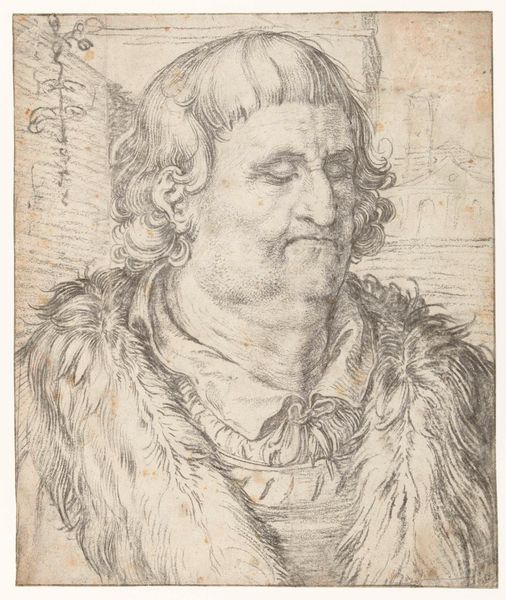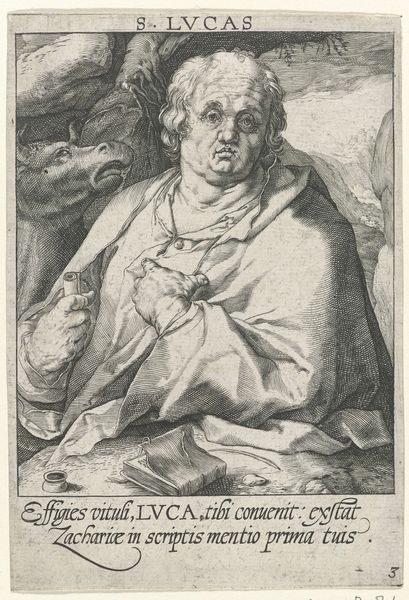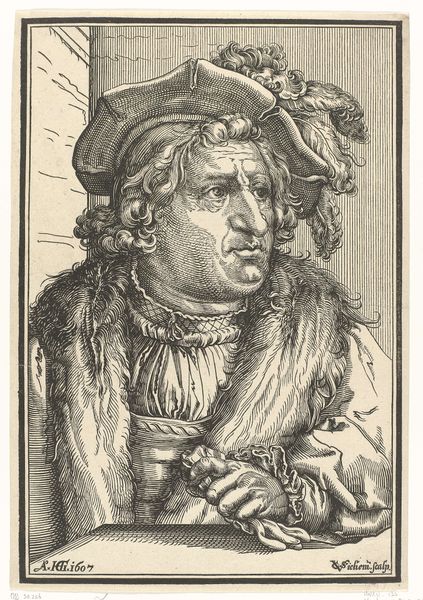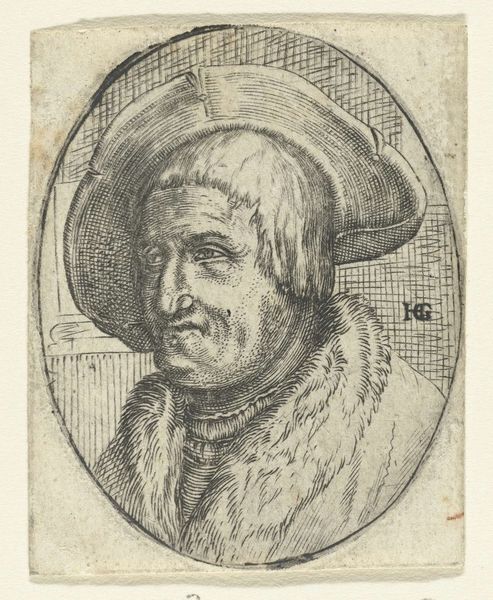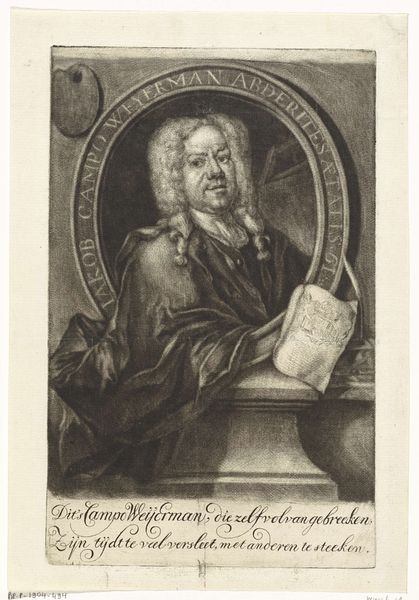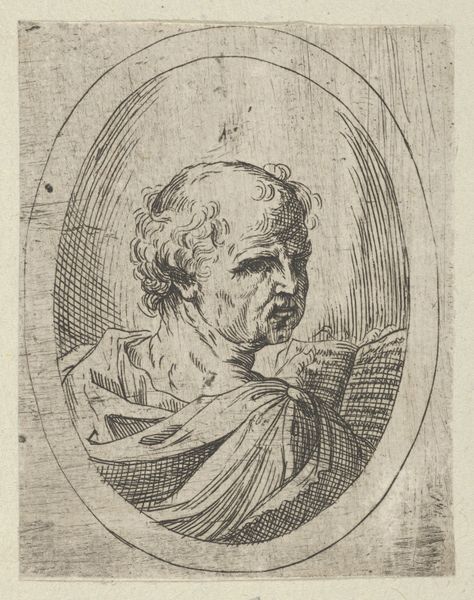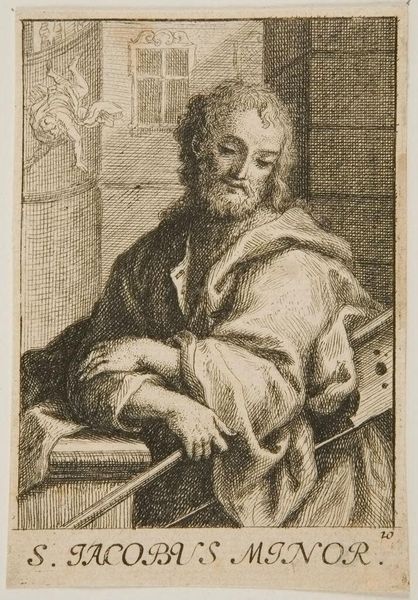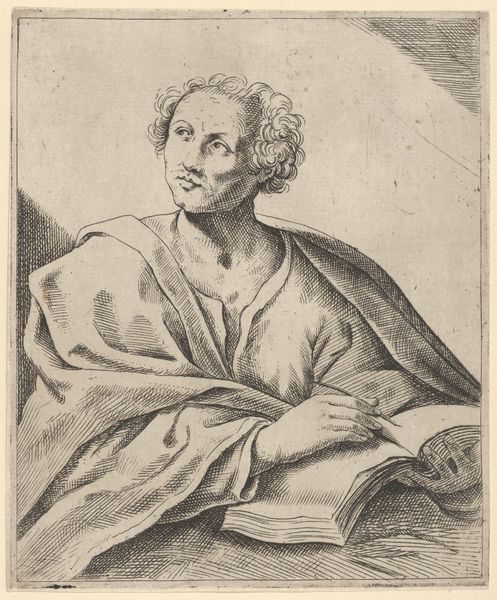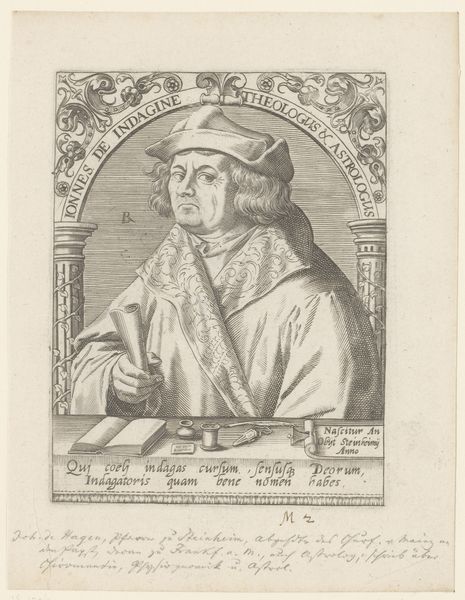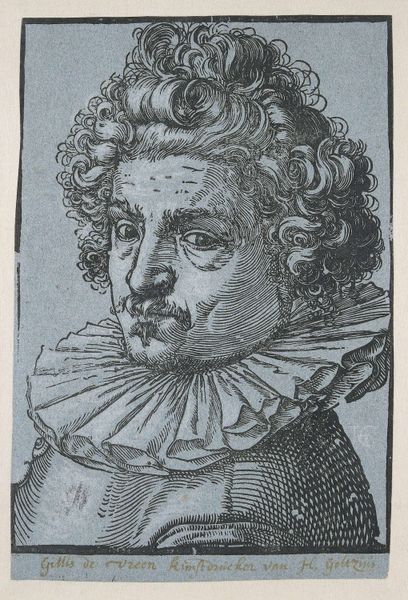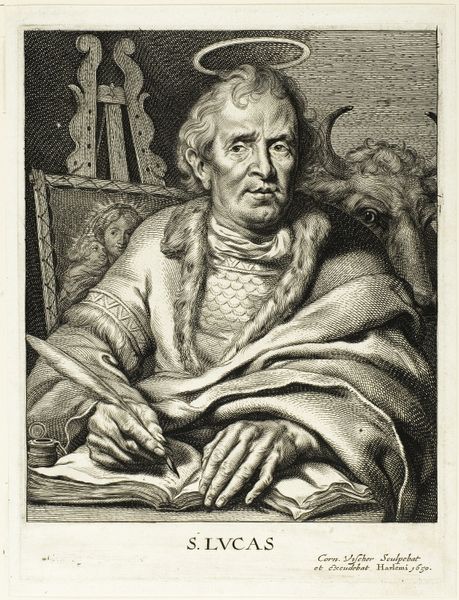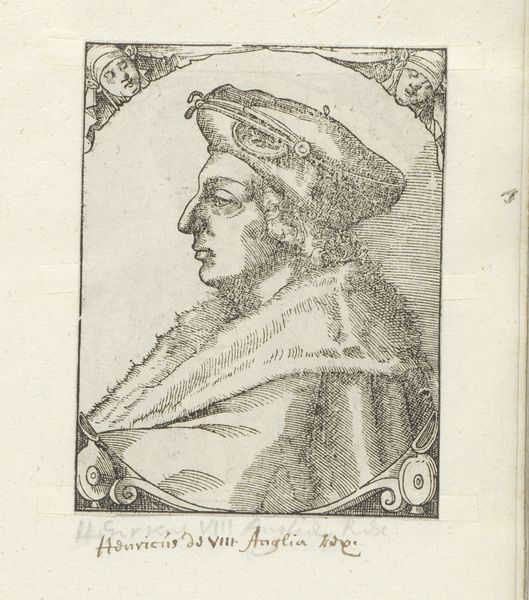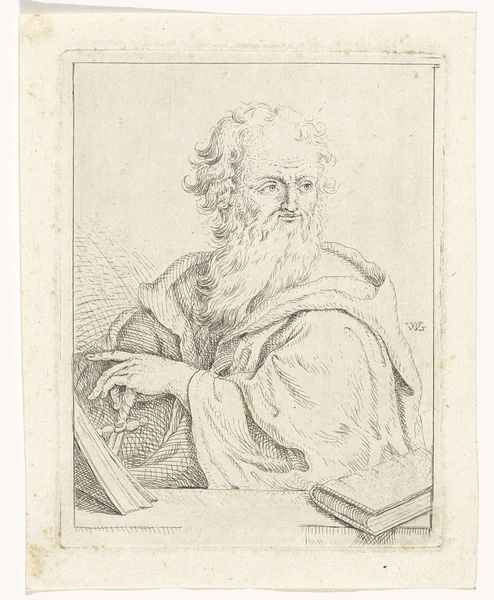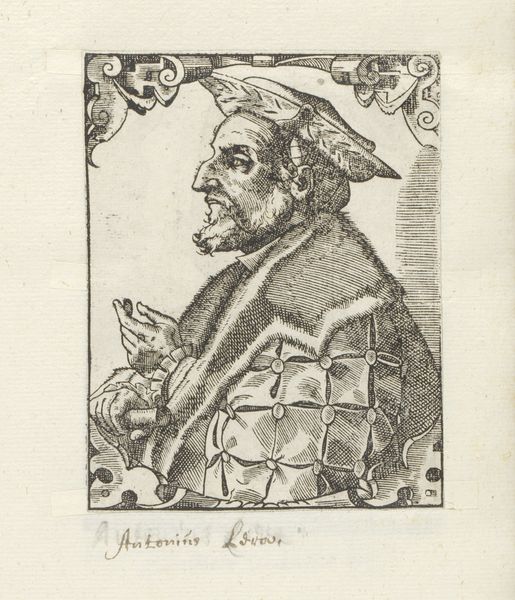
drawing, print, paper, ink, graphite, pen
#
portrait
#
drawing
# print
#
charcoal drawing
#
paper
#
ink
#
pencil drawing
#
graphite
#
pen
#
genre-painting
#
history-painting
Dimensions: 260 × 202 mm
Copyright: Public Domain
Editor: So this is Cornelis Visscher's "Saint Luke," a drawing from around 1650, rendered in pen, ink, graphite and charcoal on paper. The detail is pretty amazing for such a small work. I am struck by the rather direct gaze. How do you read this image? Curator: I see a portrait steeped in the visual language of its time, yes, but also a potent statement about the act of creation itself. This isn't just St. Luke; it's a representation of authorship, shaped by prevailing religious and social doctrines. Consider the ox behind him—the symbol of St. Luke—reduced to a supporting role while the *man* takes center stage. Editor: That’s an interesting point. So it’s about authorship as a power dynamic? Curator: Precisely. The halo, the book, the instruments of writing, all serve to legitimize and elevate St. Luke’s role, but let's not forget the layers of interpretation that have been imposed upon this image throughout history. How might a feminist reading of this work challenge the singular authority it portrays? Editor: Perhaps by questioning the traditional male-dominated narrative of artistic and religious creation, right? Curator: Exactly! The very idea of a divinely inspired "author" needs to be unpacked. Visscher's Saint Luke offers a lens through which to examine not just art history, but the construction of knowledge and power itself. This Saint Luke raises complex questions regarding gendered creative labor, class structures, and their entanglements within religious narratives of early modernity. What was not apparent at first viewing suddenly presents critical discourses when approaching art history through interdisciplinary analysis. Editor: This makes me see the artwork through an entirely new context. Thanks. Curator: My pleasure. These dialogues between past and present are crucial to our understanding.
Comments
No comments
Be the first to comment and join the conversation on the ultimate creative platform.
